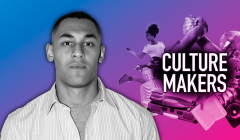
‘Subculture is the most powerful tool we have’
Louis Persent, Co-Founder and Creative Director at Weirdo on the power of embracing the niche

From the new era of marketing for good, to the need for greater humanity in marketing, here are the key themes from this year’s Cannes Lions International Festival of Creativity.

For 66 years, the creative industries have gathered on the French Riviera to award world-class creativity, and, in more recent years, discuss the future of the advertising industry and the key trends marketers and agencies need to know. Aline Santos, EVP Global Marketing and Chief Diversity and Inclusion Officer at Unilever, noted that this year “we are at a turning point in our industry.” Speaking at an event from The Economist, she observed, “We had a very negative data point in the UK this year, saying we are the least trusted profession. This week is the beginning of the turnaround.”
Simon Cook, Managing Director of Cannes Lions, said the conversations and themes emerging at the festival underline the fact that the industry is in the midst of change. He highlighted sustainability, cultural connections, gender equality, brand values, the evolution of storytelling, and responsible consumerism as the hot topics for the industry.
Yet in amongst those hot topics was a renewed focus on the need for greater humanity, both in terms of creative output and representation, and in the relationships between the people working at brands and agencies. The growing number of marketers attending the festival helped to power more honest discussions about the pain points behind award-winning work.
Aside from tackling huge global and business challenges, the importance of talent, of people and relationships based on mutual respect was perhaps the defining theme of the festival. It was a point also underlined by Unilever’s Santos who noted, “If you squeeze your agency, you won’t get the talent and creativity that you need.”
Yet talent, creativity and passion for the work was in abundant supply across the festival’s 600 speakers. Here are some of their key themes as well as a few pieces of award-winning work:
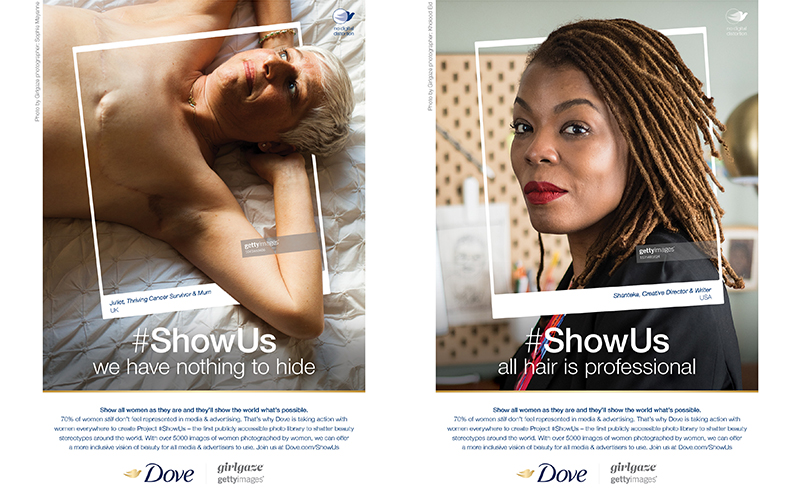
Reinvention isn’t just about product innovation. It also means more evolved depictions of gender and power.
Syl Saller
The need to drive the diversity and inclusion agenda, and in particular the need to move beyond limiting and dehumanising stereotypes was a key theme of the festival. Project #ShowUs, a partnership between Dove, Getty Images and Girlgaze, had a significant presence at the festival, with panels and ad hoardings, as well as branding on the back of delegate passes. It was difficult to miss this campaign for greater diverse and inclusive representation of women in media.
“Brands cease to become relevant when they do not respond to calls for change and 70% of women globally are asking for brands to take more responsibility for the images they use,” explained Dr Rebecca Swift, Senior Director of Creative Insights at Getty Images. “Diverse and inclusive representation is now not simply just the right thing to do; the business success of brands will depend on them getting it right. So, I am hugely optimistic of swift, positive change.”
As Swift explained, the ambition of Project #ShowUs is huge: “We want to put an end to the narrow definition of beauty consistently portrayed around the world, which negatively impacts the health of women, as well as their relationships and the opportunities they are given. We are directly calling upon the media and creative industries to fundamentally change the way they represent women. Cannes is the largest and most important gathering of these industries, so it was vital we had a significant presence there.”
It was clear that diversity and inclusion was at the heart of festival content and a key theme for brands including Diageo, Procter & Gamble and Unilever. A dedicated festival area, Inkwell Beach, made a positive impact with energetic, action-focused talks focusing on diversity, inclusion and equality, hosted by The Cannes Can: Diversity Collective.
Syl Saller, CMO of Diageo shared how the drinks giant is working with its agency partners to share ideas on how each one can improve its gender equality statistics. She noted that creative leadership is an area of big concern. Data from Creative Equals shows that in the UK as little as 12% of creative directors are women. Saller revealed that at Diageo agencies this rises to 39%, but that amongst its big agencies it is only 24%.
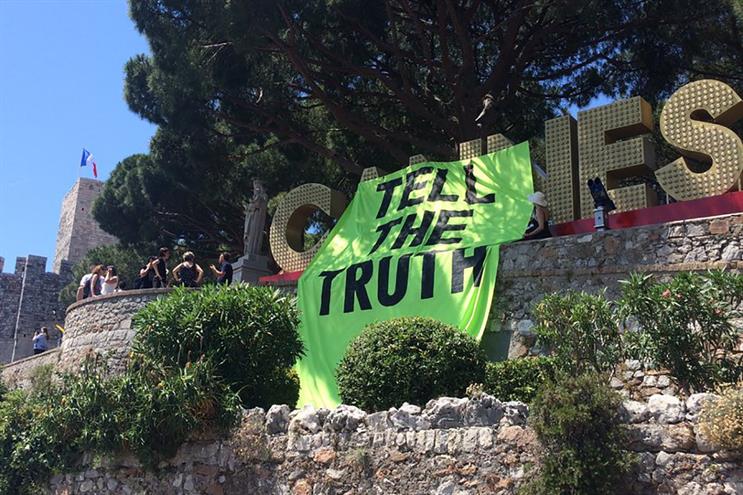
Doing the right thing for society and doing it for profit are the same thing in the long term.
Livia Firth
The emergency we face with climate change is becoming impossible for brands to ignore. The same could be said for the festival, for not only was the schedule packed with purpose-driven panels, but Extinction Rebellion took to their protest to the Palais to urge the industry to finally act.
Unilever CEO Alan Jope called out corporate ‘woke-washing’ and warned that the company won’t be partnering with agencies or other companies with a “false purpose.” The message to agencies was clear: get your own house in order or it will negatively impact your bottom line.
The urgent need for brands to take a stand was a theme across the week. Research from The Economist unveiled at the festival, revealed that nearly half (48%) of respondents agreed that companies that operate with social purpose have a financial competitive advantage over their peers. 78% noted that companies don’t invest in long-term initiatives.
Speaking at the festival, Livia Firth, Co-Founder and Creative Director at Eco-Age argued passionately that “doing the right thing for society and doing it for profit are the same in the long term.”
Rory Sutherland, Vice Chairman of Ogilvy UK, presented a compelling case for purpose moving beyond being a marketing tool in isolation. He pointed to the original purpose of soap, to encourage washing, which in turn helps to prevent disease. Yet consumers were never faced with a strapline “use soap and don’t get cholera.” Instead marketing focused on the fact that using soap could make you look and smell good. “Brands should do good by stealth,” he explained.
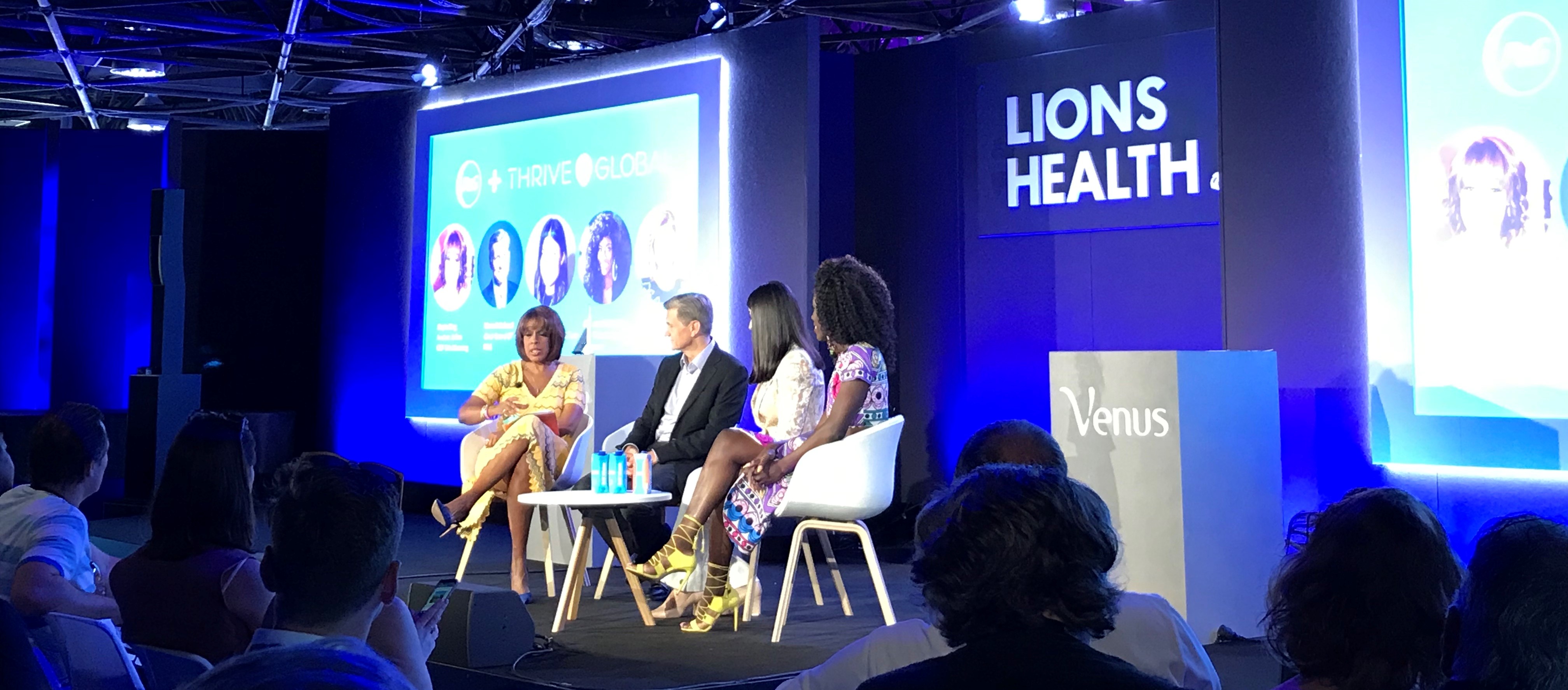
The mental health epidemic is so big. We need to talk about perfection anxiety. We need to move beyond crippling self-doubt.
Marc Pritchard
Unveiling its global partnership with Thrive Global, P&G’s Chief Brand Officer Marc Pritchard lifted the lid on the reality that work-life balance “doesn’t work.” “Now it’s about integration, but we’ve got to work this out,” he noted, pointing to what he described as a “mental health epidemic.” Pritchard’s comments underline a broader shift within marketing, with brands identifying how they can have a more positive impact of the mental wellbeing of both their consumers and employees.
Elsewhere at the festival, Pedro Earp, Chief Marketing and ZX Ventures Officer at AB InBev, explained that while social anxiety and depression is the big disease of the next century, “our purpose is to bring people together.” However, he urged brands to act with integrity, explaining, “I think the purpose washing comes when people aren’t sure what good you are bringing to society.” He emphasised the importance of being clear on where your company stands.
This mindfulness also extends to how brands communicate with their consumers and challenging “advertising pollution.” As Syl Saller noted, “We should take adblocking as a challenge. Stop making what we want to make and start making what our consumers want to see.”
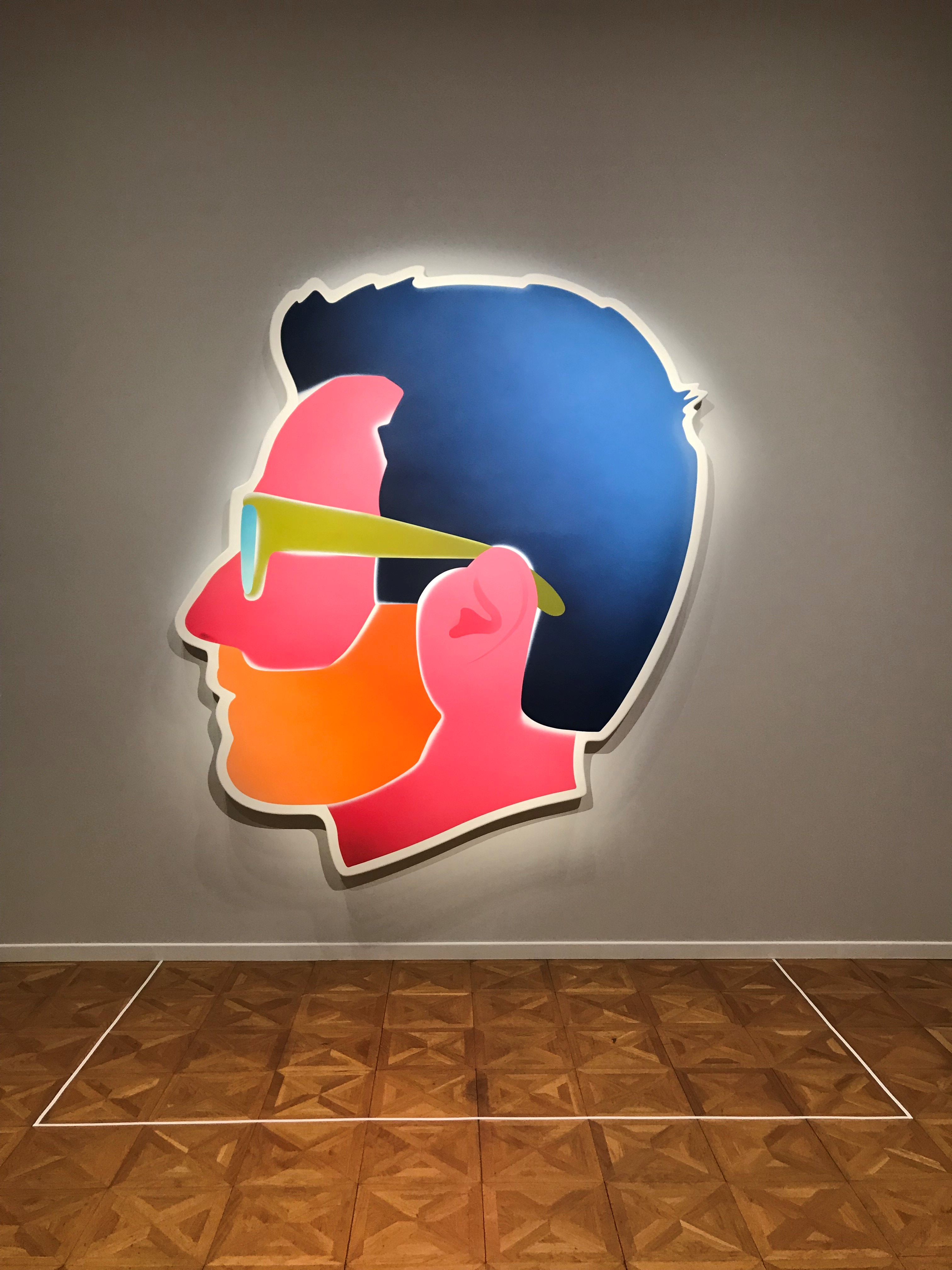
If we aren’t in the business of understanding humans, we aren’t in business at all.
Aline Santos
The need for marketers to merge human-led creative thinking with big data and technology was a key theme of the festival. The opportunities afforded by AR were at the top of the agenda, alongside the power of data to drive business forward.
Unilever’s Aline Santos was there to talk about The Unstereotype Alliance, a global initiative introduced by Unilever in 2017 to banish stereotypical portrayals of gender in advertising and brand-led content. Santos noted, “In today’s marketing we are blessed with a wealth of data and technology that can drive efficiency. But that efficiency should never be at the cost of empathy. If we aren’t in the business of understanding humans, we aren’t in business at all. The business case for Unstereotype is only getting stronger, proving the need for us all to come to work as people first and marketers second.”
Cannes continues to be a hub for tech-enabled creativity. We Are Social and the AI start-up Mentalista introduced the first ever football game powered by thought, while Snap’s augmented reality team collaborated with LA artist Alex Israel on five paintings that come to life via a viewer’s smartphone.
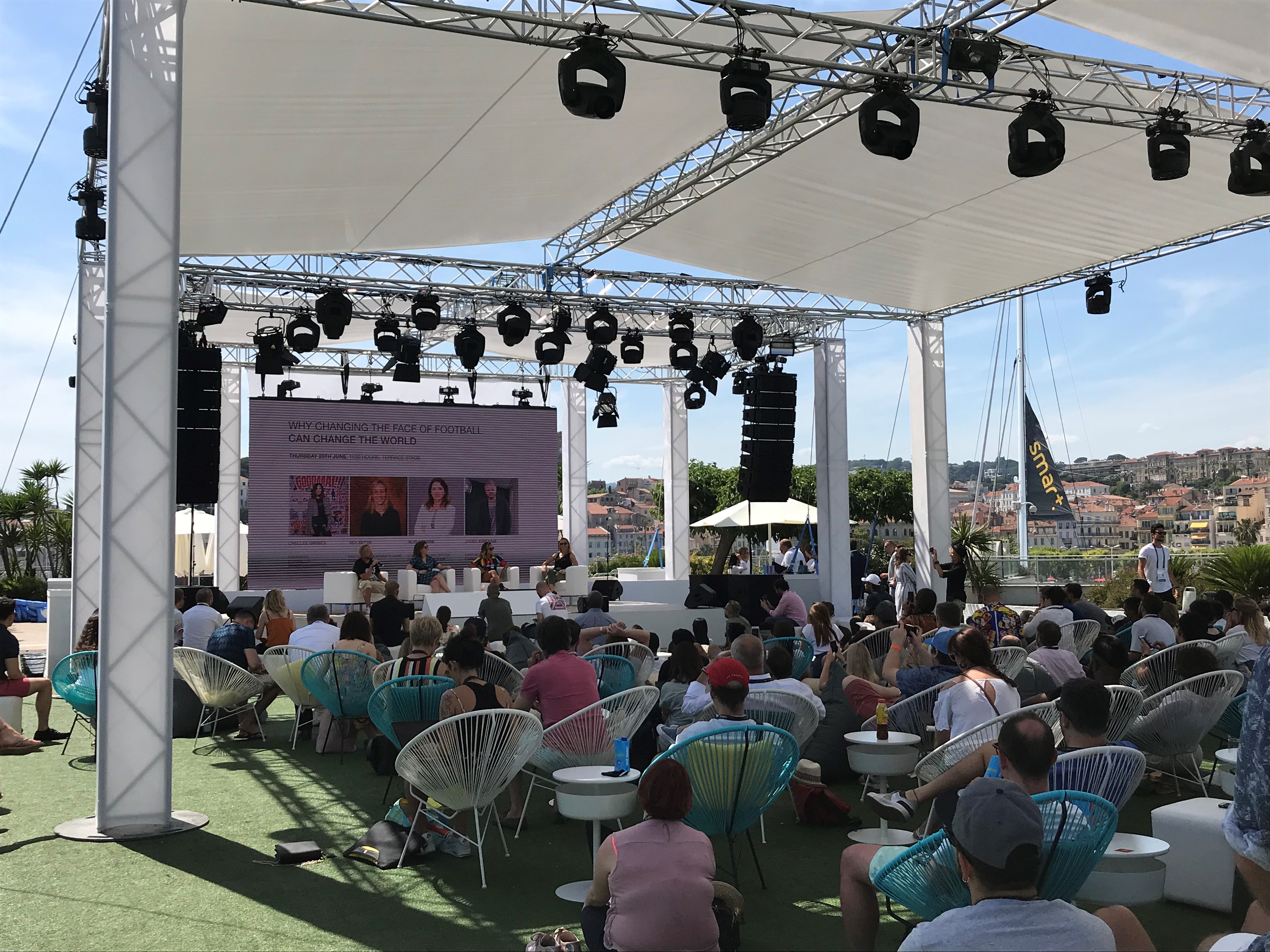
The stories have always existed but there was no place for them to be seen.
Rebecca Smith
This year, the stories told within advertising and marketing are slowly beginning to diversify. As consumers’ voices grow louder, brands cannot afford to ignore them, and this means that the breadth of stories being told is greater than ever, although still not great enough. As Marc Pritchard, Chief Brand Officer at P&G revealed, “40% of women say they don’t feel represented in ads.” For years, their stories haven’t been told but now they’re speaking up.
Kerry Washington, an actor, director and founder of production company Simpson Street spoke on a panel about women and the direct-to-consumer economy. When it comes to storytelling, Washington believes in the power of empathy: “put yourself in someone else’s shoes to tell a story.” She added that empathy allows creators to recognise stories that may otherwise not have been told: “[we are] putting stories that have traditionally been on the peripheries at the centre of the content.”
Peripheral stories formed the backbone of COPA90’s talk around women’s football which saw Nuria Tarre, the CMO of City Football Group, reveal that now is a “great opportunity to look at the game through different eyes.” Where once the game revolved around the male players, now with this year’s Women’s World Cup, the conversation has shifted, and brands are open to telling different stories.
As Rebecca Smith, Global Executive Director of the Women’s Game at COPA90 said, “The stories have always existed but there was no place for them to be seen.” Smith cited the growth of digital platforms as a key factor in providing “a home” for these stories. But with 95 million photos and video uploaded on Instagram every day, it could be that people need help ensuring their creativity is seen. And making them stand out from the deluge.
This is something Free the Work is looking to provide. The next iteration from the team behind Free the Bid, Free the Work has set out to put a spotlight on under-represented talent by creating a digital platform where creatives can host their work. There is power in creating a space in which people feel heard, in which they feel like their stories can be told. As Amanda de Cadenet, Founder and CEO of Girlgaze, passionately said, “All perspectives are important.”
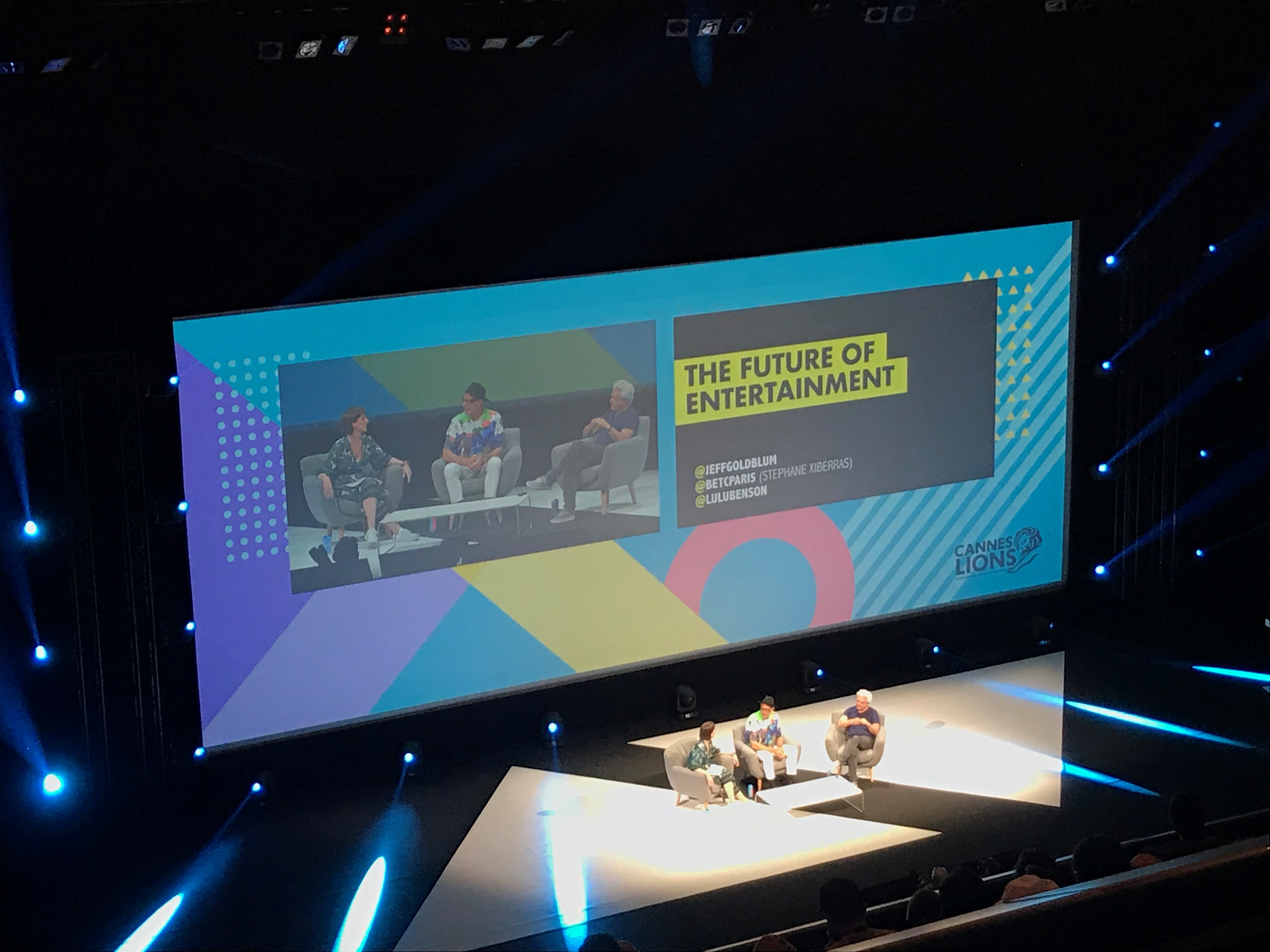
I consume therefore I am. Our social interactions are driven by the entertainment we consume.
Louise Benson
On stage with Jeff Goldblum, Louise Benson, Executive Festival Director of Cannes Lions, led a conversation about the future of entertainment. This future lies in the hands of the next generation, Gen Z. As to how they consume their content, Benson revealed that “41% of Gen Z only value the entertainment they can talk about. I consume, therefore I am. Our social interactions are driven by the entertainment we consume.”
Marc Pritchard spoke about how the industry needs to reinvent its creativity because, with trust in advertising at an all-time low and more people using ad blockers than ever, “[we need to] merge it with film, comedy, journalism …to engage people so they look forward to the next engagement with the brand.” If the consumer, particularly a Gen Z consumer, is not entertained, they will simply switch off or turn away. “If it’s going to interrupt, it’s got to be entertaining,” said Pritchard.
The point continually raised by many a marketer was that, when it comes to the next generation, nothing but authenticity will do. Anything less, and you’ll be caught out. But, when it comes to the tone that needs to be used to reach them, Lucie Greene, Worldwide Director of The Intelligence Group and JWT Intelligence, outlined that “humour and entertainment are so important.” As a brand, you have to be worth the interruption otherwise you may lose your young consumer forever.
Looks like you need to create a Creativebrief account to perform this action.
Create account Sign inLooks like you need to create a Creativebrief account to perform this action.
Create account Sign in